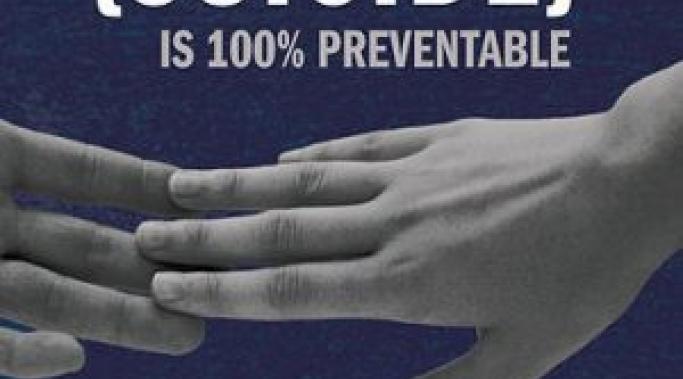Recently suicide threats are on my mind as I had to deal with a very serious one last week on Facebook. There are two things that shock me about suicide threats online:
People usually ignore them.
Some (depraved) people actually egg the suicidal person on.
Now, I won’t go on about how deplorable it is to egg on another person’s suicidal ideation or threat, but I do want to discuss why people ignore suicide threats.
How Others See Bipolar
Self-esteem is a funny thing. I think we’re all born with it but somewhere along the way it gets damaged for many of us. Self-esteem is simply: “a realistic respect for or favorable impression of oneself; self-respect.” And yet many of us feel pretty much the opposite. We feel an unreasonable disrespect or unfavorable impression of ourselves.
And mental illness may be one reason why.
Recently a commenter talked about how she felt taken advantage of by a loved one who had schizoaffective disorder. This particular individual seemed to take a lot from his family and gave nothing in return. He refused to shower, help out around the house, pay for anything and would eat out at restaurants with no money and then insist his family come down to the restaurant and pay for him.
The person with schizoaffective disorder was being medically treated and the loved one felt that he was just manipulating the people around him.
Now, I can’t say what the motivation was in this scenario, but certainly, this commenter is not the only one to have found herself in that situation. So the question is, is mental illness an excuse for bad behaviour?
When people realize they have a mental illness like bipolar disorder or schizophrenia, one of the first feelings they have is fear. And there’s a lot to be afraid of. There are the treatment, doctors, symptoms, side effects and then there’s the illness itself. It’s completely reasonable to feel scared in that situation.
And in that moment, or possibly in a moment shortly thereafter, the fear of abandonment becomes a reality. A very reasonable and realistic fear is that people will abandon you because of the mental illness.
Now, of course, no want wants to be bipolar, but people do make the conscious decision to admit to their bipolar disorder online. There are many reasons to do this but often people want to be able to express themselves in catharsis or reach out for support. These are perfectly good reasons.
But, unfortunately, that decision is not always met with understanding and support. In fact, sometimes it’s met with vicious hatred.
Not long ago I was in touch with someone newly-diagnosed with bipolar disorder who had started a blog to express his feelings on it. He was just an ordinary guy trying to do his best to make sense of the senseless.
And what happened? Quite simply he was attacked on all sides from the antipsychiatry crowd. Somehow they found him, zeroed in on him, and hounded him with hatred until he slinked off of Twitter altogether.
I have not done a book review on here but that’s because I don’t tend to read help books on bipolar disorder – I write that material, not read it. But recently one such book has landed in my possession and I’d like to take the time to recommend it: Loving Someone with Bipolar Disorder – Understanding and Helping Your Partner (second edition) by Julie A. Fast and John D. Preston, PsyD.
People often ask me how to help others with bipolar disorder and I believe this book could help partners answer that question.
As I wrote, some people believe that if you don't have a mental illness, you can't understand someone with a mental illness. I'm not sure this is true.
One of the challenging things about being a person with a mental illness who talks about psychiatry (and doesn’t hate it) is that all those people who do hate psychiatry perk up and get mad. These people often identify as “antipsychiatrists” and I’m not their biggest fan. While I consider it quite reasonable to question your doctor, psychiatrist, treatment, therapist and other treatment aspects, I consider going after an entire branch of medicine ridiculous. There is no “antioncology” faction in spite of the fact that a large percentage of people with cancer die (depending on the type, of course).
And this manifests in many of our lives. It’s not that antipsychiatrists just attack me; it’s that people of that mindset attack your average person who is just trying to deal with a mental illness. It’s the people who say, “mental illness doesn’t really exist” or “psychiatric medicine doesn’t work” or many other things that many of us hear online and in our real lives all the time.
So how do you talk to these people who have decided that your disease doesn’t exist and you shouldn’t be in treatment?
For some reason people like to come on here and tell me (and sometimes others) that I’m not bipolar. They feel, for whatever reason, that my writing is not that of a person with bipolar and somehow it indicates that I’m not bipolar. I’m not expressing the right emotions. I’m not writing whatever it is that a “real” bipolar person would be writing.
And this happens in real life too. People somehow feel qualified to determine a person’s mental status simply by the way a person with bipolar acts in front of them.
Well, for the record, I would like to say from me, and all the other mentally ill people in the world: bite me (or, you know, us).
I once wrote a post called, My Bipolar Symptoms Aren't Your Symptoms: I'm More Bipolar Than You. The point of the post is that two people can experience bipolar disorder very differently. Even when two people meet the Diagnostic and Statistical Manual of Mental Disorders (DSM) diagnostic criteria for bipolar disorder, their individual list of symptoms can be quite different. One might be expansive when manic, the other might be irritable. One might sleep too much when depressed, the other might sleep too little. And so on and so forth. Neither one of them is the “right” kind of bipolar and neither one of them is “more” bipolar, they are simply suffering from the same illness differently.
Similarly, treatments are also individual. What works for one person simply doesn’t work for another. And that’s OK.





![MP900321083[1]](/sites/default/files/styles/blog_listing/public/uploads/2012/06/MP9003210831.jpg?itok=qIqD0HL6)
![MP900285007[1]](/sites/default/files/styles/blog_listing/public/uploads/2012/06/MP9002850071.jpg?itok=jA3ISj4_)

